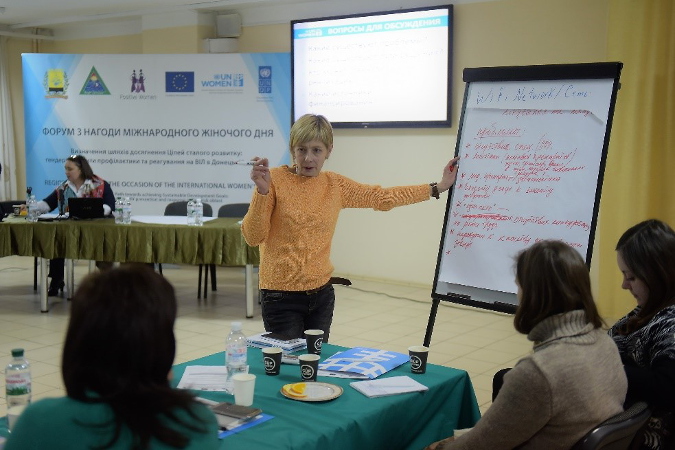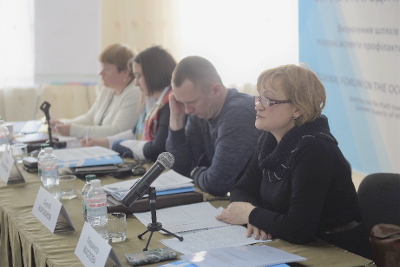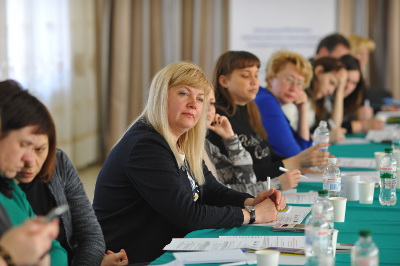Coordinated actions are needed to respond to HIV in Ukraine's crisis areas
Date:

Kramatorsk – The on-going conflict in the Donetsk and Luhansk oblasts of Ukraine is not only destroying peace but is also tearing apart long-established links of specialised agencies, service providers, the civil society organizations working to support women living with HIV. This is eventually increasing vulnerability of the women and girls.
Gender advocates, HIV-positive women and state officials joined UN-Women supported regional forum, “Setting out the Path towards achieving Sustainable Development Goals: Gender Aspects of HIV prevention and response in Donetsk oblast” to commemorate International Women’s Day.
UN Women brought together representatives of Donetsk civil-military administration, national government, Donetsk HIV/AIDS Centre, civil society organizations, women’s groups and HIV-positive women for practical consultations on challenges experienced by women living with HIV in the conflict-affected areas.
The participants discussed the gender aspects of the HIV prevention and response in the conflict-affected regions of Ukraine and how the conflict has torn long-established links of specialised agencies, the civil society organizations and women living with HIV themselves.

“The on-going armed conflict destroyed all the links we have been carefully building throughout the years between social service providers, state authorities, NGOs and HIV positive people,” said Liudmyla Maslova, Director of Donetsk Oblast HIV/AIDS Centre in her remarks.
“We had regional HIV prevention programmes – all of them are on hold since the region has been torn by the conflict. The biggest challenge is to restore and strengthen these links under the circumstances of armed conflict, when HIV-positive people get even more vulnerable than before due to displacement, loss of jobs, loss of access to therapy and medical service,” Maslova added.
Among the forum attendants, Yulia Tanaday and Kateryna Koshubynska from non-governmental organization Future Club (Klub Maybutnie) from Mariupol, city located close to the line of contact in the Donetsk oblast. Two years ago, in January 2015, their home city has been under shelling.
“NGOs often don’t feel the state support in their work, we haven’t got the feeling that our actions in responding to the HIV epidemic are coordinated with state service providers,” said Koshubynska.

At Klub Maybutnie Yulia and Kateryna work to provide services to HIV positive imprisoned women. Following the outbreak of conflict in eastern Ukraine in 2014, social services providers that work with HIV/AIDS have been facing major challenges.
“At the moment HIV-positive people trust NGOs more than state service providers. We have to coordinate our actions and gain this trust,” Maslova added.
HIV-positive women in the context of conflict are one of the most vulnerable groups. They regularly face multiple discriminations.
“Women report the cases of forced sterilization during giving birth, psychological violence and stigmatization at state medical institutions, it is problematic for them to find accommodation due to displacement. Finally, they lose access to therapy and medical service when displaced,” said Alina Yaroslavska, Project Coordinator at Positive Women.
Throughout the forum women living with HIV with other participants in small groups developed the package of recommendations for regional policy planning in the context of decentralization reform to ensure adequate response to the epidemics of HIV in the region so that HIV-positive women can protect themselves from infection, overcome stigma, and gain greater access to treatment and care.
The forum has been organized in the framework of the UN Women-UNDP joint programme on Restoration of Governance and Reconciliation in Crisis-Affected Communities in Ukraine, funded by the European Union.